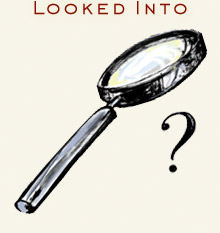Emdashes—Modern Times Between the Lines
The Basics:
About Emdashes | Email us
Ask the Librarians
Best of Emdashes: Hit Parade
A Web Comic: The Wavy Rule
Features & Columns:
Headline Shooter
On the Spot
Looked Into
Sempé Fi: Cover Art
The trouble with a gentleman poet/Is if he writes an inspired couplet those who giggle but think verse should be bleak may be unwilling to show it
Filed under: Looked Into Tagged: books, Christopher Morley, Dorothy Parker, Franklin P. Adams, Ogden Nash

A snappy review of the new Nash bio, from Carl Schoettler in the Baltimore Sun:
Ogden Nash: The Life and Works of America's Laureate of Light Verse
By Douglas M. Parker. Ivan R. Dee, Publisher. 316 pages. $27.50.
Ogden Nash certainly remains our most-read purveyor of light verse. Who doesn't know Candy is Dandy/But liquor is quicker?
But he was also a literary gentleman of the old school, a species that, if not extinct, is as rarely seen as the ivory-billed woodpecker. Douglas Parker, a lawyer writing with the "encouragement" of the family, depicts Nash as man of polished civility—witty, sophisticated, and perhaps above all, kind and gentle. He could trace his ancestry to Welsh nobility, wore extremely well-tailored suits and lunched at the Algonquin with ancient literary types such as Christopher Morley (Parnassus on Wheels, et al), Franklin P. Adams (The Conning Tower) and Dorothy Parker, although she was no gentleman.
He wooed Frances Leonard with adoring love letters, which he continued to write until the end of his life. (His dying words, after 40 years of marriage, were "I love you, Frances.") After they married, he continued to call his in-laws "Mr. and Mrs. Leonard." The Nash family lived with the Leonards for years in their rambling manse on Rugby Road in Guilford, where everyone seemed to dress for dinner.
Endlessly inventive in English, he could make puns in Latin and French as well, although he had completed only one year at Harvard when his father's business collapsed and he ran out of money. He had had three years at St. George's School, in Newport, R.I., which may have been the equivalent of today's diluted college eduction.
The New Yorker published 353 of his poems: the first in 1930, the last ten days after his death in May 1971. He seemed to embody the smart, insouciant, urbane style of the magazine in the 1930s and 1940s.
And he rarely expressed anger or even irritation, except when The New Yorker rejected a poem, or his publishers mishandled his publicity. He did, after all, basically support his family with his poetry. He tried Hollywood unsuccessfully. He hoped for triumph on Broadway and had one splendid success, One Touch of Venus, a musical for which he wrote the lyrics, including one great song, Speak Low, a standard for cabaret singers to this day.
Hard life of Billie Holiday; smart verse of Ogden Nash; kicking the war habit [Baltimore Sun]
Poems by Ogden Nash [Plagiarist.com]



